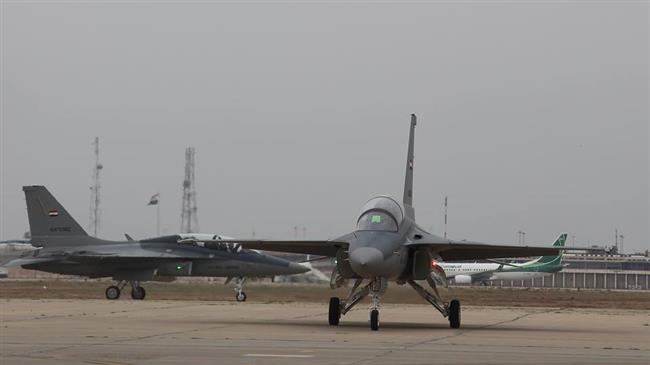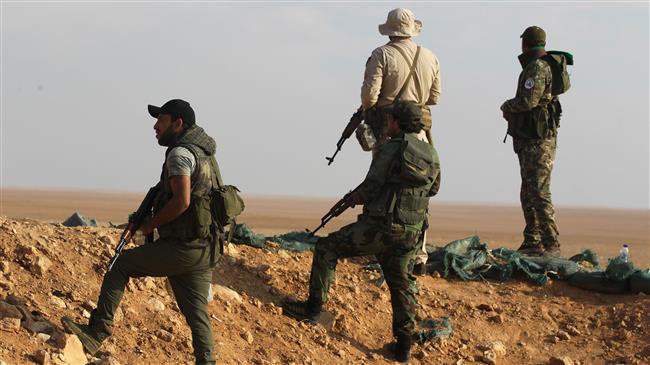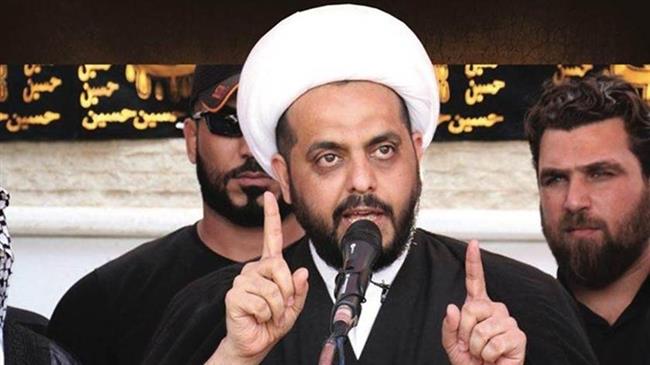Iraqi Air Force receives six more KAI T-50 Golden Eagle warplanes
The Iraqi military has received a new batch of South Korean KAI T-50 Golden Eagle supersonic advanced trainers and light combat aircraft under a deal struck between Baghdad and Seoul several years ago.
The Iraqi Air Force, in a statement released on Saturday, announced that six T-50 trainer jets had arrived at the Martyr Mohammed Alaa airbase in Baghdad.
The Iraqi government confirmed on October 28 that it had received a batch of six South Korean combat aircraft.
Back in March 2017, Baghdad also announced that six T-50 trainer jets had arrived at a military airbase in the Arab country. The Defense Ministry said the second shipment was delivered in May this year.
In December 2013, Iraq signed a contract for 24 T-50 fighter jets, plus additional equipment and pilot training over the next 20 years.
The contract was initially estimated at $1.1 billion, but the manufacturer Korea Aerospace Industries (KAI) later put the figure beyond $2 billion.

The KAI T-50 Golden Eagle’s maiden flight occurred in 2002. The aircraft entered active service with the Republic of Korea Air Force in 2005.
Iraq has been seeking to upgrade its military equipment and boost its defense power, specifically after Daesh began its campaign of terror and destruction in the Arab country.
In June, the Iraqi Defense Ministry stated that it had taken delivery of 39 advanced T-90 battle tanks from Russia, adding that the armored fighting vehicles had been distributed between two battalions of an army brigade.
The statement said that Iraqi military personnel had already been trained by Russian experts on how to operate the battle tanks.
The T-90 is a third-generation Russian battle tank built upon the time-proven Soviet T-72 design.
It is among the best-selling tanks in the world, and known for its firepower, enhanced protection and mobility.
The T-90 features a smoothbore 2A46M 125mm main gun, which can fire both armor-piercing shells and anti-tank missiles.
The advanced tank also features sophisticated armor, ensuring all-round protection of the crew and critical systems, including explosive reactive armor and active infrared jammers to defend it from inbound rocket-propelled grenades, anti-tank missiles and other projectiles.
The Iraqi military plans to reinforce its fleet of M1A1 Abrams main battle tanks with T-90s. A large number of American M1A1 Abrams tanks have been damaged in the fight against Daesh Takfiri terrorists.
Iraqi warplanes kill more Daesh members in Anbar
Moreover, Iraqi military aircraft have launched an aerial attack against the remnants of the Daesh Takfiri terrorist group in the country’s western province of Anbar, killing a number of extremists in the process.
A provincial security source, speaking on condition of anonymity, said Iraqi Air Force fighter jets struck two motorbikes as they were traveling along a road and trying to sneak into Wadi al-Shaib desert region, which lies west of the provincial capital city of Ramadi.
The source added that police forces managed to uncover a large cache of weapons in close proximity to the targeted site.
Former Iraqi prime minister Haider al-Abadi declared the end of military operations against Daesh in the Arab country on December 9, 2017.
On July 10 that year, he had formally declared victory over Daesh in Mosul, which served as the terrorists’ main urban stronghold in Iraq.
In the run-up to Mosul's liberation, Iraqi army soldiers and volunteer Hashd al-Sha’abi fighters had made sweeping gains against Daesh.
Iraqi forces took control of eastern Mosul in January 2017 after 100 days of fighting, and launched the battle in the west on February 19 last year.
Daesh began a terror campaign in Iraq in 2014, overrunning vast swathes in lightning attacks.
VIDEO | Yemen; a bone in Israeli neck
D-8’s role in Iran’s economy after Cairo summit
China slams US as ‘war-addicted’ threat to global security
China ‘firmly opposes’ US military aid to Taiwan
VIDEO | Press TV's News Headlines
President Yoon Suk Yeol to be removed from office
At least 19 Gazans killed by Israeli airstrikes since dawn: Medics
Leader: Iran neither has nor needs proxy forces

















 This makes it easy to access the Press TV website
This makes it easy to access the Press TV website